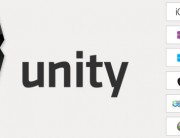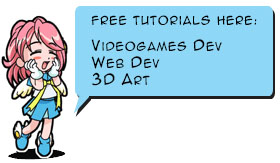What is and IDE?
To develop HTML and CSS you can use an advance notepad as NotePad++ (http://notepad-plus-plus.org/).
A tool like that is very useful for:
– Syntax Highlighting and Syntax Folding
– Auto-completion: Word completion, Function completion and Function parameters hint
– Multi-View
To edit simple PHP code you can use NotePad++ but if you want develop an application with variables and classes you will need an IDE environment. An integrated development environment (IDE) or interactive development environment is a software application that provides comprehensive facilities to computer programmers for software development.
An IDE normally consists of:
– Syntax Highlighting and Syntax Folding
– Auto-completion: Word completion, Function completion and Function parameters hint
– Multi-View
– Build Automation Tool
– Debugger
– Ready to use code for graphic elements as windows, slides, buttons.
– Project Support to organize files better
Debugger help you to find evil bugs in less time.
Today we will try NetBeans IDE (https://netbeans.org/).
NetBeans IDE is free and by Oracle.
What is a WAMP?
A WAMP (Windows web development environment) allows you to create web applications with Apache, PHP and a MySQL database without installing them in your system. It is a like a magic standalone box 
I like to use EasyPHP(http://www.easyphp.org/).
Install and Run EasyPHP
1. Go to http://www.easyphp.org/ download ‘E Development Server’ and install
2. Go to your installation folder, usually Programmi(x86)> EasyPHP> data> localweb> www> create the folder ‘test-net-beans’
3. If you have Skype running, drop it because it uses the same port of EasyPHP
4. Run EasyPHP
5. Barra di Windows> icone nascoste> RMB over EasyPHP> Administrator to see versions of Apache PHP and MYSQL
6. Barra di Windows> icone nascoste> RMB over EasyPHP> Local Web> www, to see the root folder of your website
Install and Run NetBean IDE
1. Download the package here http://www.oracle.com/technetwork/java/javase/downloads/jdk-netbeans-jsp-142931.html
This package includes NetBeans 8.0.2 + JDK, one installation, two packages!
Lanch the .exe and install
2. Open NetBeans IDE> MAIN TOP MENU> Tools> Plugins> ‘Available Plugins’ tab> check PHP> ‘Install’ button, then restat IDE
New Project – Hello World!
0. Run NetBeans IDE
1. MAIN TOP MENU> File> New project> PHP Application
2.
Project Name: TestNetBeans
Sources Folder: usually Programmi(x86)> EasyPHP> data> localweb> www> test-net-beans
PHP Version: the same setup in barra di Windows> Icone nascoste> RMB Easy PHP> Administration
3.
Run As: Local Web Site
Project URL: http://localhost/www/test-netbeans/
4. PHP Frameworks: leave blank
NOTICE: inside Programmi(x86)> EasyPHP> data> localweb> www> create the folder ‘test-net-beans’ now there is the folder /nbproject
5. NetBeans> MAIN TOP MENU> File> New File> PHP> PHP File (empty php file)
6.
File Name: index
Folder: Browse the root folder or wherever you want, ‘Finish’, good! We have our first index.php! Congrats!
7. Write inside index.php:
<?php /* * My first index file */ echo "Hello World!"; ?>
8. MAIN TOOLBAR> Play!
PHP Application with Existing Sources
0. Run NetBeans IDE
1. MAIN TOP MENU> File> New project> PHP Application with Existing Sources
2.
Project Name: TestNetBeans
Sources Folder: usually Programmi(x86)> EasyPHP> data> localweb> www> my-old-project
Project Name: my-old-project
PHP Version: the same of EasyPHP
3.
Run As: Local Web Site
Project URL: http://127.0.0.1/www/my-old-project/
NOTE: you can modify later at File> Project Properties> Run Configuration> Project URL
Index Folder: index.php or other
Debug
1. NetBeans> MAIN TOP TOOLBAR> Debug Project, it will open a page like this: ‘http://127.0.0.1/www/my-website-folder/index.php?XDEBUG_SESSION_START=netbeans-xdebug
2. MAIN TOOL BAR> ‘Step Into'(F7) to debug step by step
Resume
The combination of tools is simple:
1. Easy PHP acts like a webserver, run Apache, PHP and MySQL in a sandbox and hosts the web site inder /www/mysite folder
2. NetBeans create a project file inside /www/mysite/nbproject and manages/edits .php files inside /www/mysite folder
NeBeans IDE edit -> | /www folder of EasyPHP WAMP |








